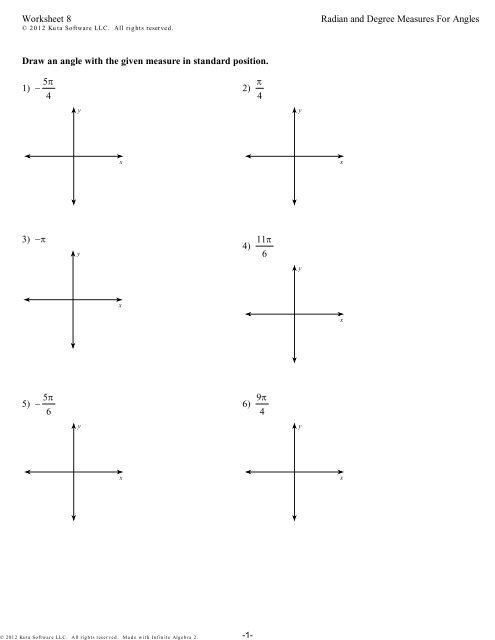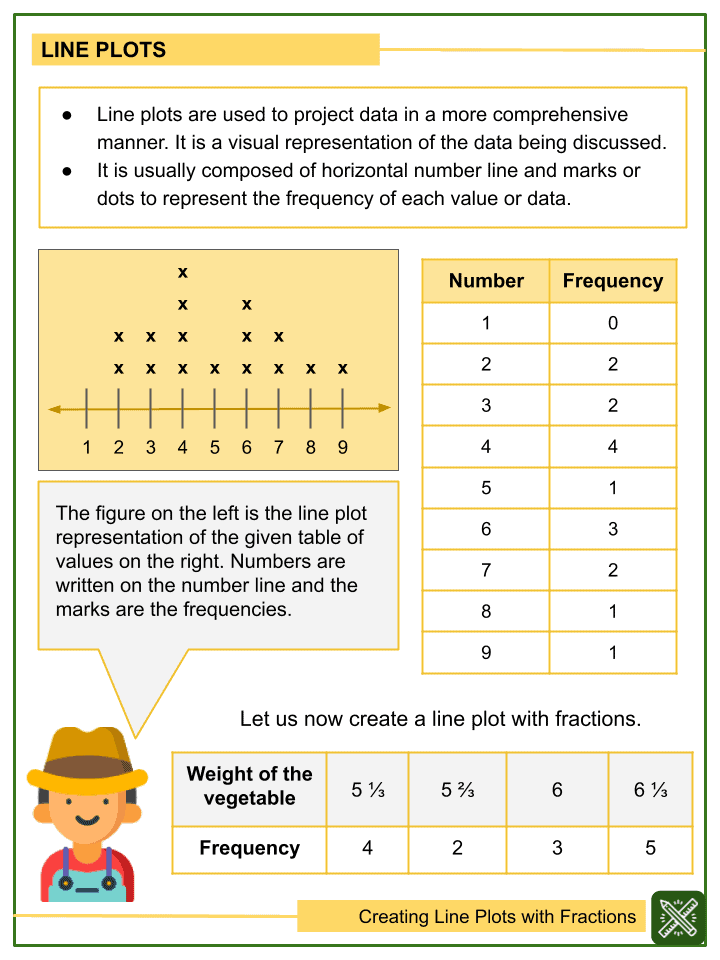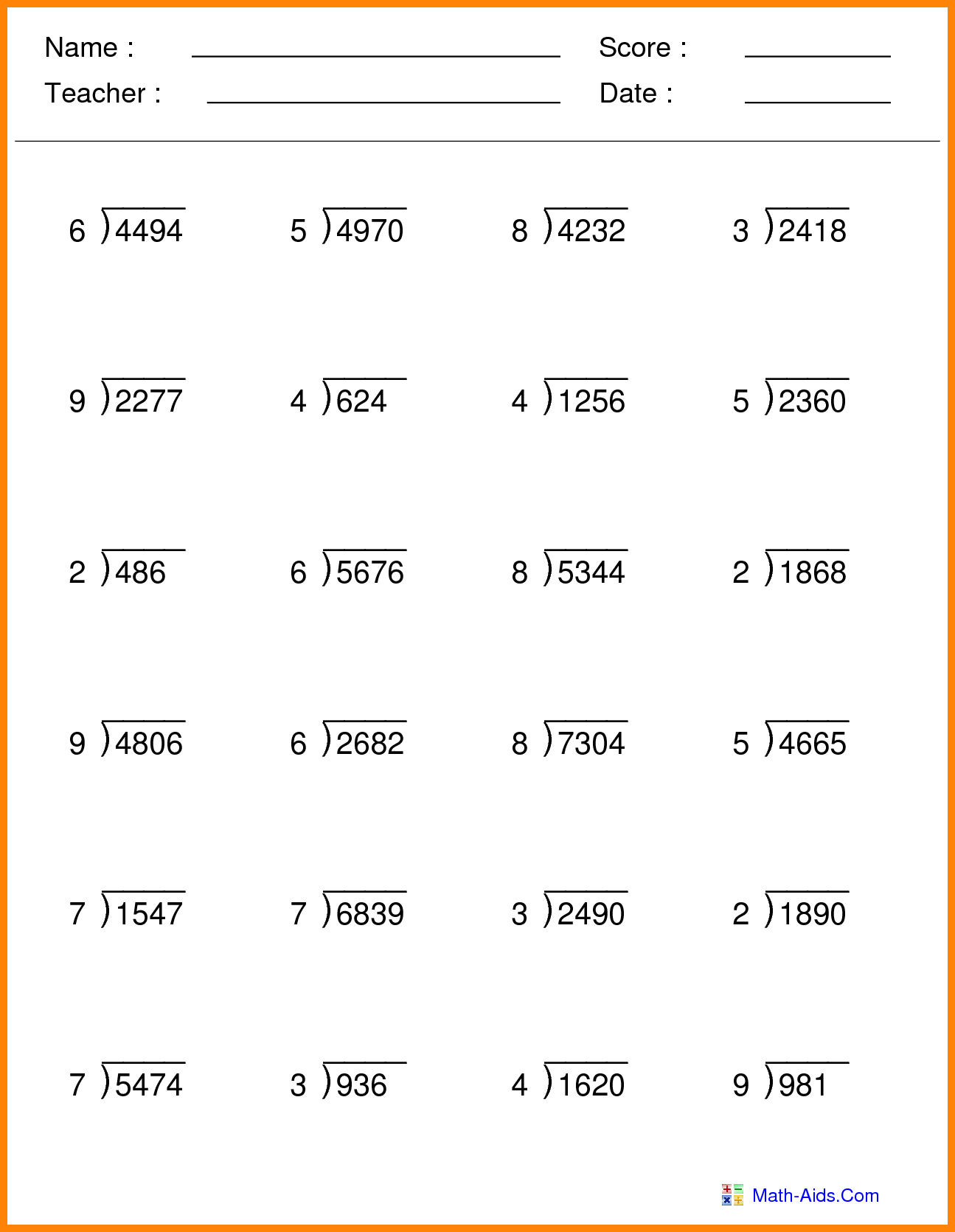Convert Degrees to Radians: Easy Worksheet Guide

Welcome to our easy-to-follow guide on converting degrees to radians, which is a fundamental skill for anyone delving into trigonometry or other branches of mathematics that deal with angles. Whether you're a student, teacher, or enthusiast, understanding how to transition between these units will give you a better grasp on the fascinating world of angles and circles.
The Basics: What Are Degrees and Radians?

Before diving into conversion, let’s understand what we’re working with:
- Degrees: A degree (°) is a measure of angle that splits a circle into 360 equal segments. Each segment is one degree.
- Radians: Radians (rad) are an alternative measure of angle based on the radius of a circle. One radian is the angle at the center of a circle subtended by an arc equal in length to the radius of the circle.
Here’s a table comparing the units:
| Degrees | Radians | Note |
|---|---|---|
| 0° | 0 rad | Both represent the same angle. |
| 90° | π/2 rad | Quarter of a circle. |
| 180° | π rad | Half a circle, or a straight line. |
| 360° | 2π rad | Full circle. |

📝 Note: Degrees and radians can represent the same angle, but they use different scales.
Converting Degrees to Radians: The Formula

Converting degrees to radians can be done with a simple formula:
Radians = (π/180) × Degrees
Where π (pi) is approximately 3.14159.
Steps for Conversion

- Take the degree measure you want to convert.
- Multiply the degree measure by π/180.
- You will get the equivalent in radians.
🔎 Note: Ensure your calculator is in radian mode if using trigonometric functions after the conversion.
Examples:

- 30° to Radians:
30 × (π/180) ≈ 0.5236 rad
- 135° to Radians:
135 × (π/180) ≈ 2.3562 rad
Why Use Radians?

Here are some advantages of using radians over degrees:
- Radians simplify calculus calculations involving trigonometric functions.
- They are the natural unit of measurement for angles in terms of circular geometry.
- Radians are directly proportional to the arc length they subtend on a circle’s circumference.
Practical Applications

Radians are often used in various fields:
- Physics and engineering for wave theory, circular motion, and oscillatory phenomena.
- Computer graphics for rotations and transformations.
- Geometry and trigonometry in higher mathematics.
Worksheet Guide: Practice Your Skills

Now that you know the theory, let’s put it into practice. Here’s a simple worksheet to help you solidify your understanding:
1. Convert the following angles from degrees to radians:
- 45°
- 75°
- 120°
- 150°
2. Identify the quadrant of the following angles in radians:
- π/6 rad
- 7π/6 rad
- 5π/4 rad
🛈 Note: This worksheet can be used for self-study or as homework assignments.
Wrapping Up

In this comprehensive guide, we’ve explored the essentials of converting degrees to radians, including the underlying concepts, the conversion formula, practical examples, and a small worksheet for practice. Mastery of these conversions enhances your ability to work with angles in various contexts, from basic math problems to advanced applications in science and technology.
Remember, the key to proficiency lies in understanding the relationship between degrees and radians, practicing the conversion regularly, and applying it to real-world scenarios. This understanding not only improves your skills in mathematics but also lays a strong foundation for further studies in related disciplines.
What is the significance of using radians instead of degrees?

+
Radians are particularly useful because they simplify many mathematical expressions involving trigonometric functions, which are naturally expressed in terms of radians rather than degrees. They are also directly related to arc length and the measure of the radius, making them more intuitive in circular geometry and calculus.
Can I use a calculator for degree-to-radian conversion?

+
Yes, most scientific and graphing calculators can convert degrees to radians. However, it’s essential to ensure your calculator is in the correct mode (degree or radian) before performing calculations with trigonometric functions.
How does the use of π (pi) affect calculations with radians?

+
Since π represents half the circumference of a unit circle, it naturally comes into play when dealing with radians. It simplifies various calculations, especially in calculus, where trigonometric functions are integrated or differentiated, as they often result in expressions involving π.



